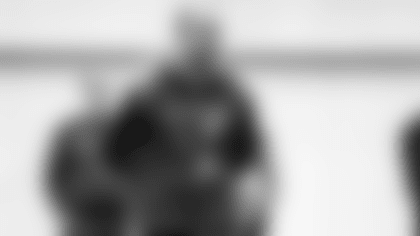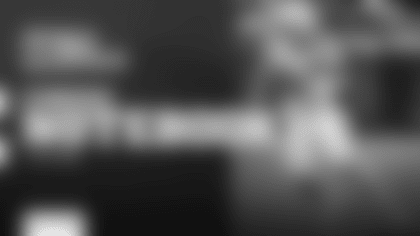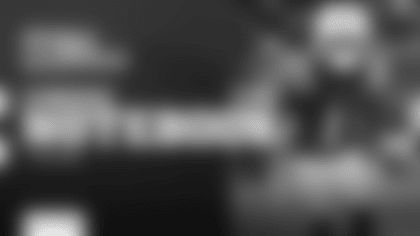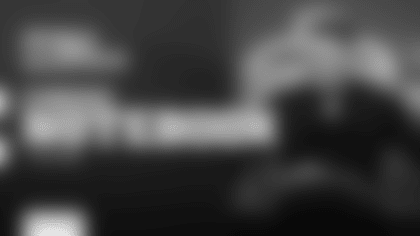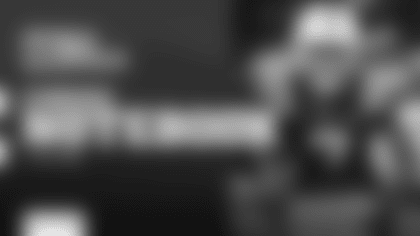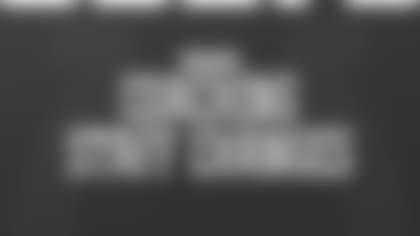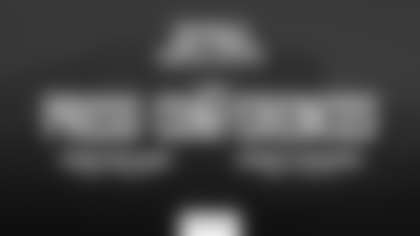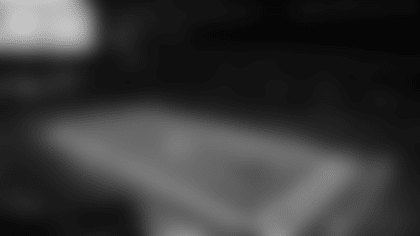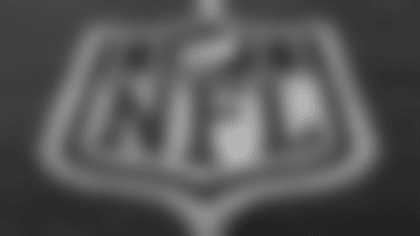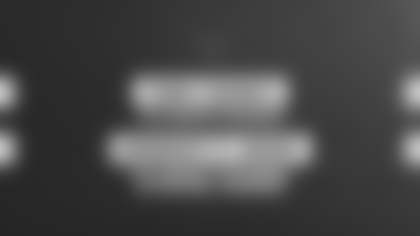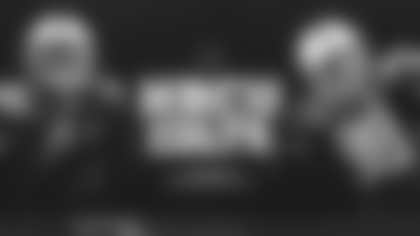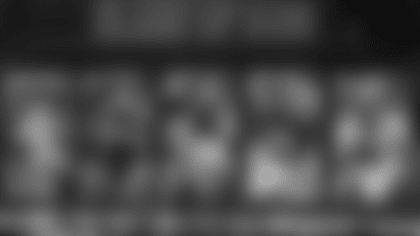Bill Polian is in his first season as Colts vice chairman after spending the previous 13 seasons as Colts president. Polian has a resume unique in the NFL. The only man to win NFL Executive of the Year six times, Polian in the 1980s built the Buffalo Bills into a four-time Super Bowl participant. In the mid-1990s, he built the expansion Carolina Panthers into a team that made the NFC Championship game in its second season, 1996. Since joining Indianapolis in 1998, he built the Colts from a 3-13 team in 1997 and 1998 into one that has made the playoffs 11 of the last 12 seasons, including AFC Championship game appearances after the 2003, 2006 and 2009 seasons, an AFC East title in 1999, AFC South titles in 2003, 2004, 2005, 2006, 2007, 2009 and 2010, Super Bowl appearances following the 2006 and 2009 seasons and a Super Bowl championship following the 2006 season. Each week during the season, in The Polian Corner, Polian and Colts.com will discuss issues pertinent to the Colts and the rest of the NFL.
The Polian Corner will run in two installments each week. Below is this week's second installment:
Q: Regarding back up quarterbacks, you have gambled on back up quarterbacks and it's been a pretty good gamble. This year it may have come back to haunt you. Some teams are winning games with backups, but we haven't been able to win. Are you going to change your thinking on getting a backup quarterback?
A: I will give you the answer in three parts. Number one, we haven't saved money by not spending it on a backup quarterback. We've spent it on other players. We haven't saved any money, we've just spent it on other players who play more than a backup quarterback does. For example, Dallas Clark. We might have lost him in free agency but for a blockbuster contract. We kept him. For example, Antoine Bethea. That's a conundrum that every general manager is faced with, 'Do you pay a safety, or do you pay a backup quarterback?' Some people would say pay the safety. Some others would say pay the backup quarterback. Secondly, we thought that Curtis Painter would have the ability to step in and do the job if anything happened to Peyton (Manning). We knew going in that Curtis would need to have a scaled-back game plan. We never quite got to that while he was playing. Then he didn't have success. New Orleans came, and then things went from bad to worse. I guess you have to say, 'Well, we made a poor judgment on Curtis Painter.' I'm responsible for that. While I feel badly for Curtis, I have to take responsibility for that. To take that a step further, Tim Tebow was a number one draft choice who started the season as a third-stringer. T.J. Yates was drafted in the sixth round by Houston. If I had it to do over again, would I do it over again differently? Yes, absolutely. In my job, you only get one chance. None of us is perfect. I agree with you. I bear a lot of responsibility for what happened here. It weighs heavily on me. It breaks my heart that there are good players and good coaches who are going through an awful time because we didn't build a strong enough football team. There's no question about that. The second part of my answer is, 'How do you get that backup quarterback?' Do you pay somebody and sacrifice at another position? Do you draft one, like T.J. Yates, or like Tim Tebow? Not 'like' Tim Tebow, not that style of player, but where he was drafted. The answer to that is perhaps, if the right person is there. There's no question, by the way, that had we known in April at draft time that Peyton was not going to play a full season, we would have drafted a quarterback in the first round, no question about it. If told you the name of that player, you would recognize it instantly. The bottom line is that was a mistake on my part and I have to take the responsibility for that, and I do, willingly and sadly. Bottom line, I agree. We need a backup quarterback. The question is who, at what cost? If it's in the draft, that fellow has to be able to run a different version, a completely different version of the offense that we now have. That is an issue we're going to deal with in the off-season, too, depending on who the backup quarterback is and what his capabilities are. We have to be very firm and very focused on the idea that he cannot run the same offense that Peyton Manning does.
* *
Q: I want to thank you for the past drafts and the accomplishments you have helped build by taking the best athlete available. It has paid dividends and I look forward to this year's draft.
A: I can't talk about any underclassmen as I said on the show last week because that's against league rules, so I'll skip that part of it. I think that you make two very good points. Number one, (is to) take the best player regardless of position in virtually every round. The exception to that (rule) I've always said is quarterback and pass rusher because those are the two hardest things to find. We can use a good player at virtually every position. The issue of how you structure with or without Peyton (Manning) is one we'll get answered down the road. I tend to think you're applying a lot of wisdom because really until the preseason comes around, you're probably not going to know what your team really looks like. Virtually all the things you say are correct, with this exception. If we were to take a rookie quarterback and if we were to play him, he would struggle. Remember, Peyton was 3-13 his rookie year. He did not really look like the quarterback that he became until, ironically, this time of year in Baltimore (in 1998) where we lost a shootout. We went up and down the field and he missed Marvin (Harrison) on an audible where they mis-communicated at the end of the game. That would have won the game and Baltimore ended up winning it. It's going to take any rookie, whether it be Anthony Castonzo or anyone else, a good long time, one year to get their feet under them and really know what the National Football League is all about. Then you have an off-season program and the second year (and) now he's ready to contribute. No matter who we draft next year, there's going to be a break in period for them. You won't see the real quality of that player until a year later and in some cases, depending upon what the system is and how he fits, it took Philip Wheeler two years. Last year he began to scratch the surface. This year he's come on like gangbusters, but it takes time for young players to develop. Even if we were to draft a marquee player in the first round, no matter who it is, that guy's not going to come in and contribute immediately, unless he were a running back. That's the exception.
Bob Lamey: The selections of Edgerrin James and Dwight Freeney were good choices, weren't they?
A: (Edgerrin James) was not bad. Dwight (Freeney) don't forget, he struggled until the midpoint of his rookie year when he then became 'Dwight Freeney.' It takes time is the point I want to make. I'm happy with our draft this year. I think we got five really good players. (Joe) Lefeged is a collegiate free agent. (David) Caldwell is a collegiate free agent. We got seven good players who are going to help our team and some like (Drake) Nevis are hurt but will be back next year and play well. (Ben) Ijalana is hurt as well. This has been a good draft and will really be productive for us.
Q: Other than Dwight Freeney and Robert Mathis, who would you consider as younger building blocks for the defense? Why did Kavell Conner play in the nickel early in the season and does not now? Can you evaluate Conner?
A: You're pretty cognizant of what goes on defensively. First of all, (I mentioned) young players who are going to get better. I just mentioned (Joe) Lefeged and (David) Caldwell. I think both (are) contributors at the safety position, not quite as far along as Antoine Bethea was as a rookie but close. (They are) two guys I think are going to be real contributors and get better as time goes by. Pat Angerer definitely deserves to go to the Pro Bowl and I bet he'll get a fair amount of votes because everybody that plays against him says, 'Wow, this guy is really something.' He is one tough hombre. He played yesterday with a knee that would have put most people down for a couple or three weeks. He was down for two days and came back out and played. He's really, really a good player. Kavell Conner is a good player. Philip Wheeler is a good player. I think we have some backup linebackers, A.J. Edds and Scott Lutrus that we picked up, that are going to be pretty good players for us, along the lines of some of the really good linebackers that we've had in the past. That first group is, probably with the exception of the nickel position which you astutely point out, maybe as good as any we've had. That's saying something because we've had David (Thornton), Gary (Brackett), Cato (June), Mike Peterson. As a group, I think they may be as good as any we've had. I think Drake Nevis is going to be a very good player. He's out with an injury now that can only be healed by rest. He should be back strongly next year. He was a good player when he was playing. He was a starting (defensive) tackle from day one. He may be the keystone that we're looking to build around on the defensive line. Those are fellows that I think have a chance to be major contributors, and then (Chris) Rucker has come on pretty darned well in the secondary. He's shown signs of growth and is a tough guy who can hit. There's a future for him. That's seven players on defense that can form the core of a mighty good defense. We need better on the front and we have to get better at our techniques. We probably certainly need more efficient play at corner, but that's getting better. I'm enthused about the defense. As far as Kavell is concerned, he's got a bad foot which he's been nursing. Actually, he was down most of the off-season with it. He's been nursing it through. They want to take some of the workload off him. If Ernie (Sims) is back and playing, we're able to take some of the workload off him. Ernie can run. He's not as explosive, obviously, as Kavell is. When Kavell hits you, as he did Vonta Leach in the fourth quarter yesterday, he doesn't lose many collisions. He and Philip are fun to watch. The more we can rest him in those situations the better off he will be.
Q: Would the club select a quarterback if Peyton Manning is healthy. Is that the ideal situation?
A: I can't really speculate on that. For one thing, I don't know where our pick is going to be. Secondly, I'm not sure which of the four potential or five potential quarterbacks is even going to come out in the draft. There are four guys that all of the wise men, the gurus are talking about, (and) three of them our juniors. I don't know whether they're going to come out or not. That's point one. Point two, (is) we don't know yet what Peyton's health is going to be. I guess my answer is I don't construct any ideal scenario because we've got to find out exactly what all of the options are. Right now we don't know what they are. Everybody is speculating and I understand about stories (in the media). That's perfectly okay. As I've said on this show on a number of occasions before, I don't deal with stories. I have to deal with the real world. Unfortunately right now we don't know what our options are. Now, will we know by March? Will we know by April? I think so. I think we'll be much further along the trail at that point in time in terms of knowledge and knowing what our options are, but right now I couldn't construct that ideal scenario for you because I don't know what the options are.
Q: Is Jim Caldwell's job in jeopardy if the club goes 0-16? What was the delay in putting in Dan Orlovsky at quarterback?
A: First of all, my fervent hope is that Jim's job is not in jeopardy because my fervent hope is that we don't go 0-16. We're doing everything we can to try and avoid that. In terms of Curtis (Painter), his first four games, I thought, were very good. I thought the arrow was up. Then came New Orleans. Then we had three bad games after that and the arrow went down, although, not markedly so. I think he was a victim of a bad call in the game here against Carolina, which might have changed everything. Perception is a big thing in this business but it didn't, and then we didn't convert there to win the game. Bottom line, it is a production business and the coaches decided to go with (Dan) Orlovsky. I thought certainly in the first four games he (Painter) played, maybe three, I could be wrong on that, but the early games he played, including Cincinnati, he was really pretty good.
Bob Lamey: As far as Tennessee goes, it may be that Matt Hasselbeck doesn't play. If not, then we see Jake Locker.
A: Yes, we have to go chase Jake Locker. Guys like that give you trouble because you don't really have a book on him. You don't know which way he's going to come out of the pocket, idiosyncrasies that are in his game that you don't have a big book on. It makes it difficult. Secondly, I'm sure Chris Palmer, who is their offensive coordinator, will do a great job putting in some quarterback runs and options and stuff like that in there so you have to defend that, which makes it more difficult. That's part of the (Tim) Tebow phenomenon. He's got Chris Johnson. I don't know if he'll have (Javon Ringer) as a backup. He's got a bad hand, so we'll see as the week goes on. They're very salty on defense and they're very healthy. Jerry Gray, their coordinator, is really urging them to be physical. He's really telling them to go out there to go to the edge. I think a lot of that is rhetoric, but the bottom line is they've always been that way. They've always been a rough and tough bunch. We'd better be ready for a long afternoon of slugging with them because they're very good at it. This game presents a similar challenge to what we saw with Cam Newton and the Panthers – two really good running backs, a game-breaker in Johnson, a very good offensive line and a so-called running quarterback who can do things that you're not used to seeing. It provides a heck of a challenge for our defense.



